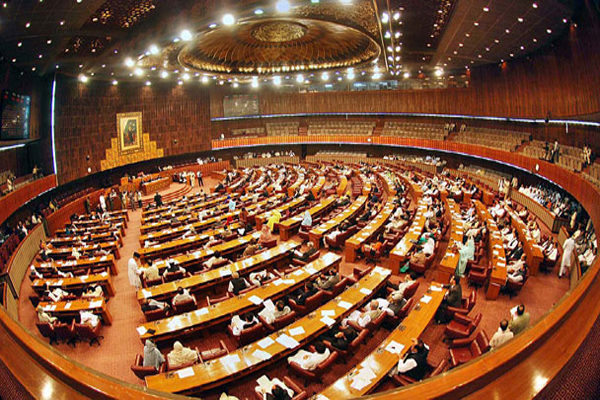ISLAMABAD – The National Assembly Standing Committee on Finance on Friday strongly rebuked the Federal Board of Revenue (FBR) for bypassing parliamentary oversight by promulgating the Tax Laws (Amendment) Ordinance, 2025. The committee took issue with the urgency in implementing the ordinance, which has already been dispatched to field formations to recover payments from taxpayers without affording them the right of appeal.
Chaired by MNA Syed Naveed Qamar, the committee met to review the legal and procedural implications of Ordinance No IV/2025 and its potential fallout on various sectors. Expressing serious concern, Qamar termed the ordinance an “abuse of power” and criticised the FBR for using it as a tool to initiate immediate recoveries without recourse for affected taxpayers.
FBR Chairman Rashid Mahmood defended the ordinance, stating that it had been approved by the federal cabinet and the President of Pakistan and was aimed at plugging legal and enforcement gaps. “There is no abuse of power,” he said, adding that the ordinance merely operationalised court orders in tax disputes.
Qamar rejected the rationale, noting that urgency alone does not justify circumventing Parliament. “We too have urgency to review this ordinance. It should be brought before the House immediately,” he said, instructing the Ministry of Law and Justice to table the ordinance in Parliament without delay.
A representative of the Law Ministry confirmed that the ordinance would be presented as a bill in the ongoing session and then referred back to the committee for detailed scrutiny and report. However, when asked to explain the basis for the urgency, the law official was unable to provide a convincing response.
Committee members raised questions over the ordinance’s potential impact, particularly its perceived contradiction with the FBR’s stated objective of fostering a business-friendly environment. MNA Mirza Ikhtiar Baig said, “The ordinance goes against the FBR’s commitments. Trade bodies like FPCCI are protesting against it.”
Members also raised concerns about the ordinance’s implications for the judiciary and its potential to bypass judicial processes.
In response, the FBR chairman argued that the ordinance was meant to address a legal loophole exploited by some taxpayers. He explained that a procedural gap allowed up to 30 days’ delay in payments even after final judgments by the Supreme Court or High Courts.
“Billions remain unrecovered despite clear verdicts. The ordinance addresses this via amendments to Sections 138(3A) and 140(6A), enabling immediate recovery post-judgment,” he said.
He acknowledged the committee’s concerns but appealed for a trial period of 1–2 months to observe the ordinance’s operations before Parliament passes final judgment.
Despite the explanation, the committee remained unconvinced. “We’re waiting for it to come to us as a bill. Then we’ll scrutinise it thoroughly,” Qamar said.
The development signals a potential standoff between the legislature and the tax authority over bypassing legislative scrutiny and fast-tracking tax recovery measures without broader consultation.




